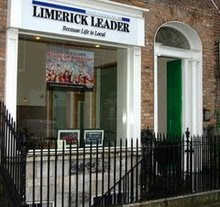RUGBY at the highest level is going high tech. Top professional clubs are embracing new technology in order to help them gain an advantage over their rivals - some rugby players are now being tracked from space in a bid to find winning edge.
Satellite tracking systems are the latest example of technology being used by English Premiership clubs in this season, following the introduction of high-tech video and computer analysis of games in recent seasons.
Saracens, Leicester, Bath and Gloucester are among those using the equipment to record training times, patterns and heart rates of their players.
A set to monitor one player costs stg£2-3,000 and highlights the investment clubs are prepared to make in off-field training methods in a bid to gain that winning edge.
This minute analysis of all things a player does is one of the big developments since the game went professional 15 years ago. No longer are players left to their own devices.
Long gone are the days they would return for pre-season training having ballooned in weight. When Munster out-half Ronan O’Gara returned to pre-season training after the Lions tour, he said it appeared as if some of the province’s younger squad members had taken little by way of a summer break from training.
Training ideas continue to change. Kingsley Jones, Sale’s new director of rugby, has told his new conditioning man, New Zealander Peter Finch, to concentrate on rugby skills rather than become totally immersed in weight training and muscle building.
Jones is a believer in training for rugby rather than trying to build a team of ‘gym monkeys.’
Munster lock Donncha O’Callaghan pointed out recently that he was struck by the fact that his first experience of pre-season training last month was a skills session. In the past, the emphasis would have been on strength work.
Rugby World Cup
The term ‘Rugby World Cup’ might strike fear into the hearts of Irish supporters following the hugely disappointing showing of Eddie O’Sullivan’s side in 2007, but it is worth remembering that the next one is now exactly two years away. Preparations for the 2011 Rugby World Cup are on track despite financial uncertainties arising from the global economic crisis, the organisers have said.
New Zealand will be hosting the tournament for the first time since the inaugural event in 1987, and top International Rugby Board (IRB) officials are in the country to review progress.
“I’m sure New Zealand 2011 will deliver yet another hugely successful and memorable chapter in the Rugby World Cup story,” IRB chairman Bernard Lapasset said at a ceremony to mark the two-year countdown at Waikato Stadium in Hamilton.
IRB chief executive Mike Miller said that international rugby was in good shape despite the financial crisis.
“I think the money is there, but some, particularly financial institutions, don’t want to flaunt the cash at this point in time, so corporate hospitality is down a bit,” he said.
Martin Snedden, chief executive of Rugby New Zealand 2011, a joint venture between the New Zealand Rugby Union and the government, said his organisation had been budgeting for a loss of NZ$30 million from the time of the successful bid for the tournament in 2005.
“The budget (loss) still stands at around NZ$30 million, but it’s undoubtedly under a wee bit of pressure,” he said.
New Zealand Prime Minister John Key said he was not surprised about reports that the loss could rise to NZ$40 million, but said the government took a wider view of the tournament’s success: “We’re confident this will be a great way to showcase New Zealand to billions of worldwide viewers and the 60,000-odd tourists that will come to New Zealand from overseas.”
Miller said organisers had made good progress ahead of the September 9, 2011 opening match.
The Eden Park stadium in Auckland, which will host the final and semifinals, is six weeks ahead of schedule in an upgrade that will boost its capacity to 60,000 spectators.
A total of 20 teams will take part in the event to be held at 13 venues around New Zealand, with the final scheduled for October 23.
Wednesday, September 09, 2009
Subscribe to:
Post Comments (Atom)




0 comments:
Post a Comment